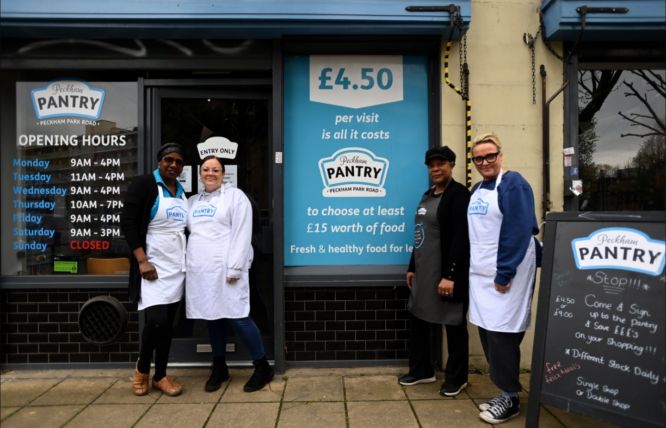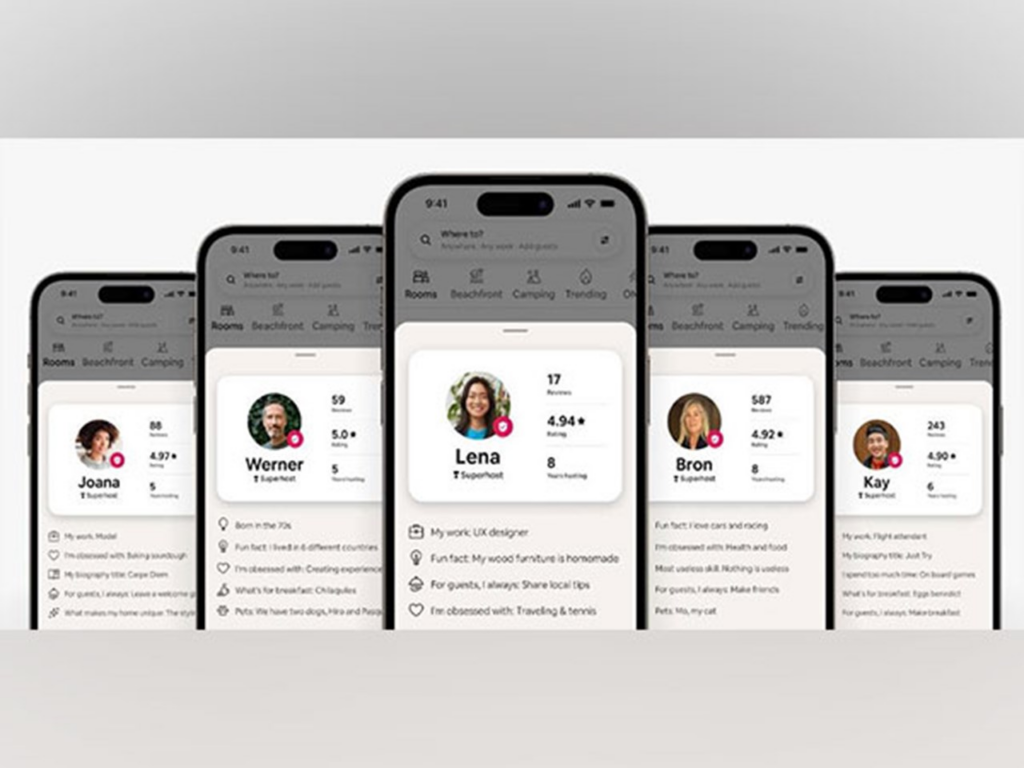UK food bank users exchange facial scans for food 2023

Instead than relying on charity and leftovers, hundreds of needy Britons may scan their faces for food.
In one of the world’s richest countries, more people are using food banks to avoid runaway inflation. Eating via app is a pleasant new alternative.
I can purchase any meal. “Everything is expensive now,” remarked Kazeiban, a 64-year-old Cypriot convert to face payment.
Since Hackney Foodbank began testing the facial recognition software a year ago, over 200 individuals a month use it. Takeup is expected to increase this year once the relationship was established.
Customers may still pick food from the charity’s donations—green crates full of canned veggies, pasta, and biscuits—but many prefer to purchase by phone to avoid the stigma of food banks.
FaceDonate is a social company that allows consumers buy goods at a few shops by scanning their faces using a smartphone app.
FaceDonate, founded in 2020, allows organizations, individuals, and corporations to fundraise and track their donations.
The food bank says it allows people buy what they need, relieves overburdened food banks, and enables the organization track spending.
According to Juniper Research, over 1.4 billion people worldwide will use facial-recognition payment technology by 2025, a fast-growing business but one with privacy hazards, digital rights experts believe.
They argue biometric data to access aid might expose vulnerable people to data leaks, commercial data exploitation, identity theft, and increased marginalization.

Dignity and agency
Hackney Foodbank CEO Pat Fitzsimons said the technology helps organizations prevent cash transfer fraud and misuse.
Users can’t buy big-ticket things, cigarettes, or alcohol with their household size-based money. She claimed they can’t transfer payments either.
Since working with Hackney Foodbank a year ago, FaceDonate has distributed over 65,000 pounds ($81,484) to underprivileged northeast Londoners using face scans.
Food banks are seeing unprecedented demand due to rising food and energy prices and Britain’s 10.1% inflation rate, the highest in Western Europe.
The Trussell Trust, which supports 1,300 food banks, including Hackney Foodbank, sent a record 3 million emergency food packages last year due to a sharp increase in demand.
Food banks aren’t popular. Fitzsimons said it’s shameful.
FaceDonate lets them buy what they want. It empowers. We want people to take charge of their life, not just receive our services.”

Fitzsimons stated that food banks need fewer volunteers and spend less time and money on logistics since the initiative allows people to choose fresh, culturally appropriate produce rarely available in food packages.
Privacy risks
Access Now advised charities employing biometric technology to evaluate their long-term effects.
Biometrics, such as iris and fingerprint scans, might put people at danger of data leaks, identity theft, data sale, or unfair targeting or exposing of underprivileged persons.
“Facial recognition is an invasive form of identification and vulnerable people who are in need should not be exchanging their most sensitive information for basic needs,” said Access Now’s Marwa Fatafta.
You can change your password if it’s revealed, but you can’t modify your facial characteristics, biometric fingerprints, iris geometry, etc. That makes people vulnerable.”

Technology has privacy issues.
Syrian refugees in UN camps in Jordan use iris scans to unlock payments from a digital assistance account using blockchain technology, but opponents warn such systems can expose them to monitoring and data abuse.
Amazon, Microsoft Corp., France’s Idemia, and Japan’s NEC Corp. have all called for face recognition legislation and claimed they turned down sales due to human rights concerns.
Amazon, IBM, and Microsoft stopped selling face recognition software to U.S. police in 2020 owing to concerns it may lead to unfair arrests, particularly in Black areas.
The UN believes Chinese facial-recognition technology business SenseNets Technology Ltd exposed millions of Uyghurs’ sensitive data during a 2019 data leak.
ODI’s senior research officer, Christy Lowe, said biometric technology might pose unintended issues.
In 2021, the Taliban seized control Afghanistan, raising concerns that sensitive data obtained by aid groups and the government will be utilized to track down activists and dissidents.
She questioned whether assistance and food recipients can offer informed consent.
“Can people say ‘no’? Is consent informed?” asked Lowe.
“Are people trading off a little bit of their desperation or real need for support by agreeing to data use terms that they’re actually not comfortable with?”
FaceDonate co-founder Alberto De Biasio stated no user data—names, addresses, or photos—is saved on their systems and accounts are destroyed if users opt out.
Face payments
Customers talked over coffee while volunteers searched boxes for diapers, bread, and soap at the food bank.
“Number nine,” a worker said as a woman handed over her ticket. She scanned her face, created a QR code, and instantly got FaceDonate dollars.
Given the popularity of phone payments, De Biasio said the innovation was simple for retailers and customers.
It’s convenient, like contactless payment with a QR code. “It’s also great for the people who receive it so they can really buy what they need,” said Kaya Akarsu of Hoxton Brothers Food, one of FaceDonate’s London partners.
The program helps 64-year-old single mother Kadriye buy Turkish groceries for her picky crippled daughter.
I’ll buy my nation’s food. Turkish cuisine, cheese. I like it than tins. “Because my culture doesn’t use tinned foods,” she remarked.
“Scanning my face doesn’t bother me. I’ll be seen here. Shoppers see me. Why hide?”
